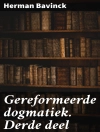This book compares three approaches to public reason and to the public space accorded to religions: the liberal platform of an overlapping consensus proposed by John Rawls, Jürgen Habermas’s discourse ethical reformulation of Kant’s universalism and its realization in the public sphere, and the co-founding role which Paul Ricoeur attributes to the particular traditions that have shaped their cultures and the convictions of citizens.
The premises of their positions are analysed under four aspects: (1) the normative framework which determines the specific function of public reason; (2) their anthropologies and theories of action; (3) the dimensions of social life and its concretization in a democratic political framework; (4) the different views of religion that follow from these factors, including their understanding of the status of metaphysical and religious truth claims, and the role of religion as a practice and conviction in a pluralist society. Recent receptions and critiques in English and German are brought into conversation: philosophers and theologians discuss the scope of public reason, and the task of translation from faith traditions, as well as the role they might have in the diversity of world cultures for shaping a shared cosmopolitan horizon.
Sobre el autor
Maureen Junker-Kenny, Trinity College, Dublin, Ireland.












